Hoboken Mayor-Elect, a Civil Rights Lawyer, Talks Law, Politics and Being a 'First'
Before Ravi Bhalla became the first Sikh-American elected to a mayoralty in New Jersey, he made a name for himself as a civil rights attorney.
November 27, 2017 at 04:59 PM
5 minute read
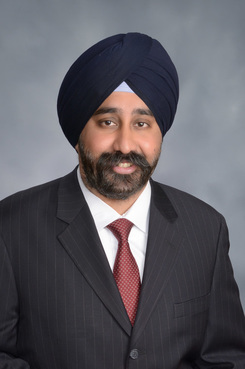 Ravi Bhalla
Ravi Bhalla Ravi Bhalla made headlines this past election season for being the first Sikh-American elected to a mayoralty in New Jersey, and for an unfortunate leafleting incident leading up to that victory. But, before all that, he made a name for himself as a civil rights attorney in New Jersey, handling cases over mandatory drug testing for students in Hunterdon, forced disembarkation of a Sikh-American on a commercial flight, and surveillance of Muslim-Americans in New Jersey by New York police.
Bhalla, a partner at Florio Perrucci Steinhart & Fader in Rochelle Park, the firm of former Democratic New Jersey Gov. James Florio, won the Nov. 7 mayoral election, beating a large slate of candidates. Bhalla, raised in Montville, already was a councilman in Hoboken, since 2009.
“I didn't take a day off since June 20,” when he announced his candidacy, Bhalla, a Democrat, told the Law Journal.
Apart from being the first Sikh mayor in New Jersey, he is one of only a handful of Sikhs to have achieved that office nationwide, he said.
Leading up to Election Day, unfortunately, apparently altered campaign flyers targeting Bhalla urged voters not to let “terrorism take over.”
Bhalla called the flyers “reprehensible” and said “the Sikh turban represents the opposite of terrorism”—namely love and equality. (Police launched an investigation in an attempt to identify the people responsible for the flyers.)
Bhalla addressed the Law Journal's questions about the race and his legal career. The responses were edited sparingly, for style and clarity.
How did you get involved in local politics?
When I started my own law firm as a solo practitioner in 2005 in Hoboken, one of my first clients were two City Council members, one of whom was running for mayor. The mayor at the time filed a lawsuit against my clients to compel them to vote to adopt a budget. Their refusal to do so allegedly caused a shutdown of all nonessential city services and was crippling Hoboken government. I successfully litigated an order to show cause filed by the city of Hoboken against my clients before Assignment Judge Maurice Gallipoli (now retired). This litigation was my first exposure to Hoboken politics.
How has your legal background and practice influenced your political life, and vice versa?
My legal background has given me a heightened ability to intersect complex legal issues brought before the City Council in various areas of law, from workers' compensation matters, to land use and redevelopment law, to civil rights and employment mattes and labor law.
My political life has not had an appreciable influence on my legal background. But I would make one critical observation: being involved in politics has given me a heightened appreciation for the practice of law. Unlike politics, as a litigator, our conduct is governed by rules, legal precedents, and a variety of checks and balances to ensure the possibility of a just result. The judicial structure in New Jersey is such that a practitioner and litigant are offered insulation from impermissible conduct. In politics, on the other hand, there literally are no rules of professional conduct. Adversaries can simply manufacture falsehoods with no basis in fact or evidence with impunity. The more structured environment of the practice of law is a stark contrast to my experience in politics.
The intersection is nothing new, but what special considerations, challenges and advantages do attorneys have in taking on government roles?
Government is based on the law, so as an attorney, it is invaluable to have legal experience. This provides a government official with heightened knowledge of what is permissible under relevant laws, how to navigate complex governmental and legal issues, and how to go about seeking remedies in the courts where required.
Do you have any insights on the flyer incidents that flow specifically from your experience as a civil rights attorney?
The flyer incident is simply a highly unfortunate and personally hurtful demonstration of the use of hate in the public square. I cannot comment further on the mater because it is the subject of an active police investigation.
How important is diversity among political candidates, and among law firms and other organizations employing attorneys? What is the best way to improve matters?
Diversity is critical for law firms and nonlegal corporations because hiring diverse and woman attorneys is simply a smart business practice for law firms and corporations. We are growing into a more diverse and globally interconnected society in America, and the needs of clients and organizations are better met from a business standpoint with the inclusion of diverse and women attorneys. Forward-thinking law firms and corporations will place a premium in ensuring diversity among law firms, and particularly training diverse and woman attorneys to develop the skills to become partners at their firms or in leadership positions at their corporation. It is also good for political candidates because government should reflect the people it represents. Right now, minorities and women are disproportionately represented in the public sector, but this is changing with time.
The best way to improve matters is to “walk the walk.” It's great to talk about diversity, and form diversity committees within law firms and have diversity programs at companies. However, this means little if law firms do not hire diverse and women partners, and corporations do not hire diverse attorneys from within, as well as retain diverse attorneys to serve as outside counsel. There is much room for growth in this area.
This content has been archived. It is available through our partners, LexisNexis® and Bloomberg Law.
To view this content, please continue to their sites.
Not a Lexis Subscriber?
Subscribe Now
Not a Bloomberg Law Subscriber?
Subscribe Now
NOT FOR REPRINT
© 2025 ALM Global, LLC, All Rights Reserved. Request academic re-use from www.copyright.com. All other uses, submit a request to [email protected]. For more information visit Asset & Logo Licensing.
You Might Like
View All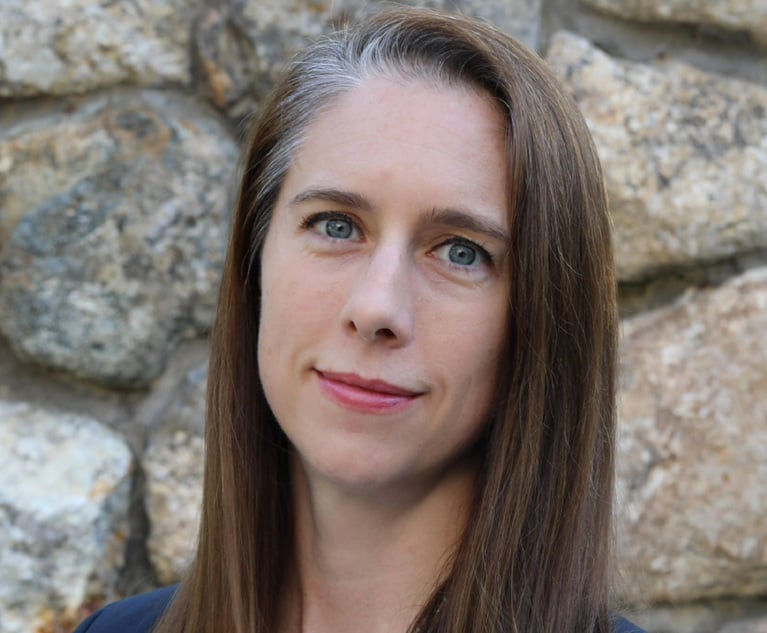
For Lawyers, the 'Work' of Making an Impact Does Not Have to Happen in a Courtroom. Laura E. Sedlak Says
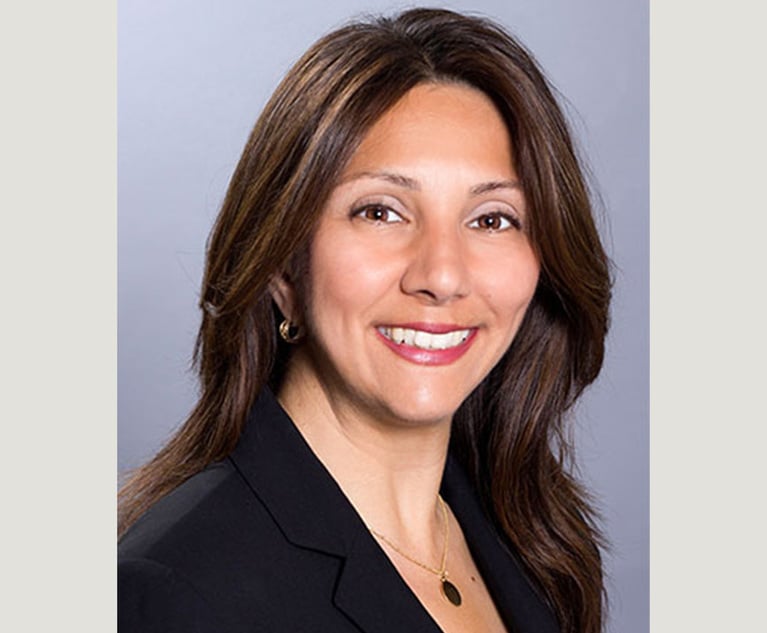
Believe in the Impact You Are Looking to Make, Carmen Andrade Says
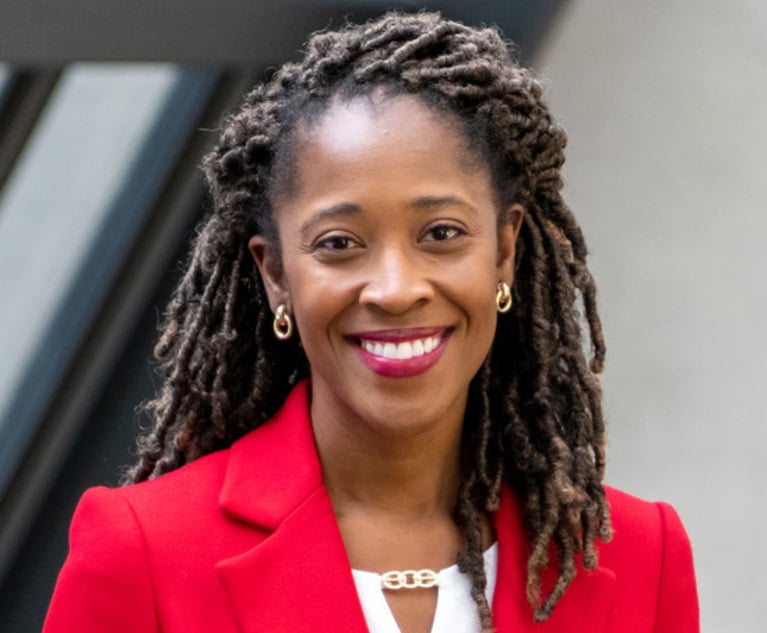
Seek Credentials to Set Yourself Apart, Crystal West Edwards Says
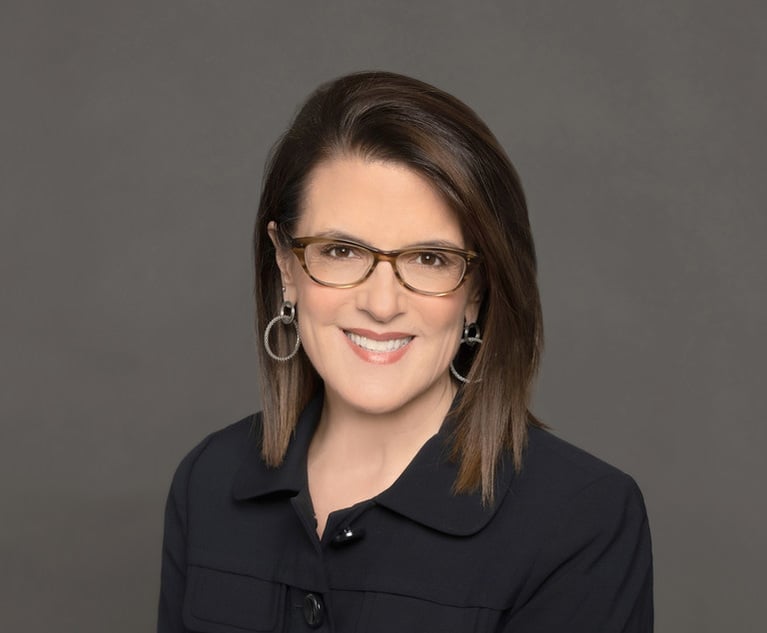
Results Are Not Always the Measure of Your Value, Patricia M. Giordano Says
Trending Stories
Who Got The Work
Michael G. Bongiorno, Andrew Scott Dulberg and Elizabeth E. Driscoll from Wilmer Cutler Pickering Hale and Dorr have stepped in to represent Symbotic Inc., an A.I.-enabled technology platform that focuses on increasing supply chain efficiency, and other defendants in a pending shareholder derivative lawsuit. The case, filed Oct. 2 in Massachusetts District Court by the Brown Law Firm on behalf of Stephen Austen, accuses certain officers and directors of misleading investors in regard to Symbotic's potential for margin growth by failing to disclose that the company was not equipped to timely deploy its systems or manage expenses through project delays. The case, assigned to U.S. District Judge Nathaniel M. Gorton, is 1:24-cv-12522, Austen v. Cohen et al.
Who Got The Work
Edmund Polubinski and Marie Killmond of Davis Polk & Wardwell have entered appearances for data platform software development company MongoDB and other defendants in a pending shareholder derivative lawsuit. The action, filed Oct. 7 in New York Southern District Court by the Brown Law Firm, accuses the company's directors and/or officers of falsely expressing confidence in the company’s restructuring of its sales incentive plan and downplaying the severity of decreases in its upfront commitments. The case is 1:24-cv-07594, Roy v. Ittycheria et al.
Who Got The Work
Amy O. Bruchs and Kurt F. Ellison of Michael Best & Friedrich have entered appearances for Epic Systems Corp. in a pending employment discrimination lawsuit. The suit was filed Sept. 7 in Wisconsin Western District Court by Levine Eisberner LLC and Siri & Glimstad on behalf of a project manager who claims that he was wrongfully terminated after applying for a religious exemption to the defendant's COVID-19 vaccine mandate. The case, assigned to U.S. Magistrate Judge Anita Marie Boor, is 3:24-cv-00630, Secker, Nathan v. Epic Systems Corporation.
Who Got The Work
David X. Sullivan, Thomas J. Finn and Gregory A. Hall from McCarter & English have entered appearances for Sunrun Installation Services in a pending civil rights lawsuit. The complaint was filed Sept. 4 in Connecticut District Court by attorney Robert M. Berke on behalf of former employee George Edward Steins, who was arrested and charged with employing an unregistered home improvement salesperson. The complaint alleges that had Sunrun informed the Connecticut Department of Consumer Protection that the plaintiff's employment had ended in 2017 and that he no longer held Sunrun's home improvement contractor license, he would not have been hit with charges, which were dismissed in May 2024. The case, assigned to U.S. District Judge Jeffrey A. Meyer, is 3:24-cv-01423, Steins v. Sunrun, Inc. et al.
Who Got The Work
Greenberg Traurig shareholder Joshua L. Raskin has entered an appearance for boohoo.com UK Ltd. in a pending patent infringement lawsuit. The suit, filed Sept. 3 in Texas Eastern District Court by Rozier Hardt McDonough on behalf of Alto Dynamics, asserts five patents related to an online shopping platform. The case, assigned to U.S. District Judge Rodney Gilstrap, is 2:24-cv-00719, Alto Dynamics, LLC v. boohoo.com UK Limited.
Featured Firms
Law Offices of Gary Martin Hays & Associates, P.C.
(470) 294-1674
Law Offices of Mark E. Salomone
(857) 444-6468
Smith & Hassler
(713) 739-1250






